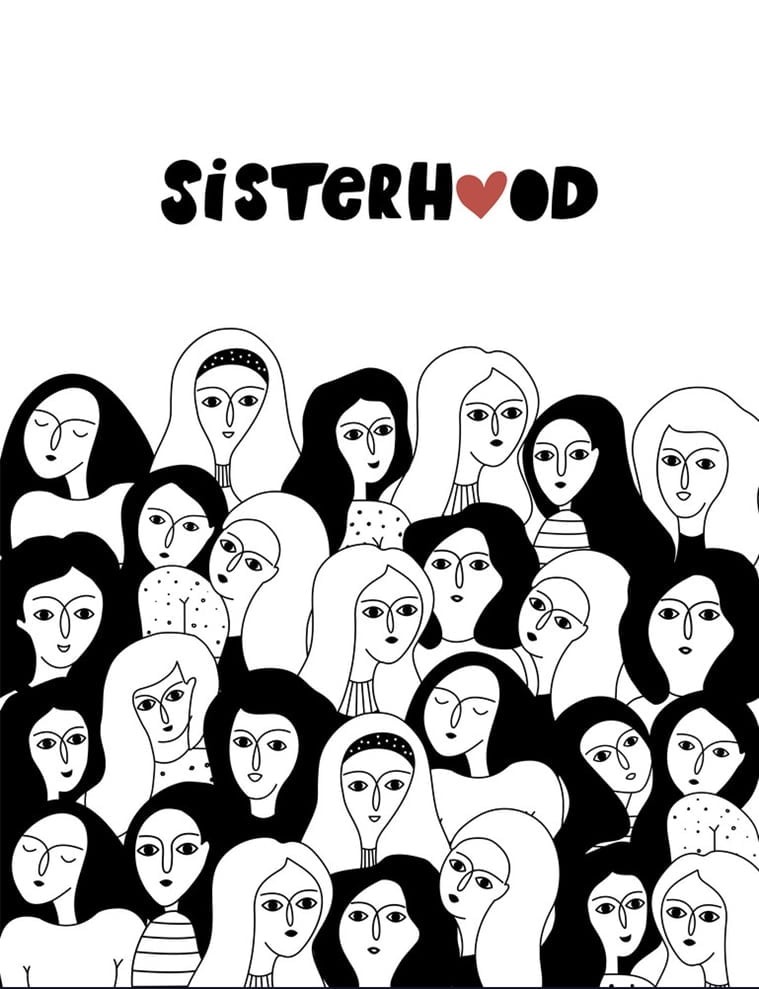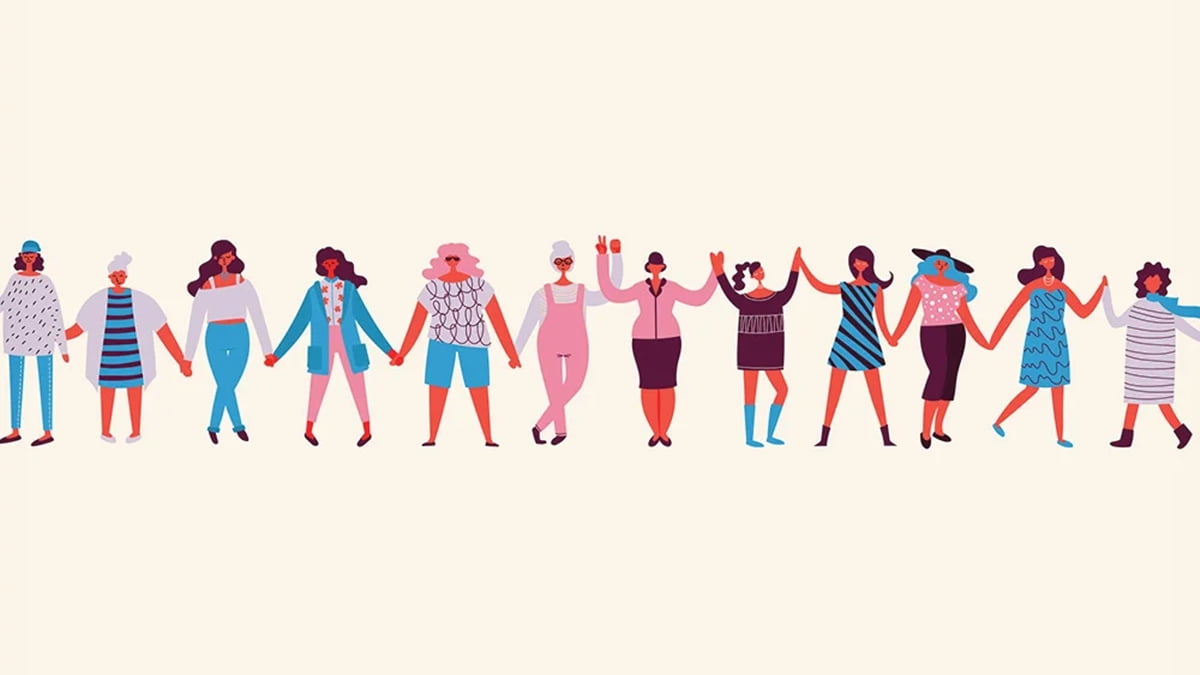Feminism has over time evolved into a more personalised, convenient concept and has ceased to be a mere generic definition. From certain people (Woke Bois™) branding themselves feminist (especially on performative Twitter) yet not thinking twice before they call someone “gay” as an insult, to our mothers (who call themselves much more progressive than their parents) asking us to follow our dreams only after we have made sure our husbands and in-laws are satisfied with our services – everyone want to have a piece of the cake that is feminism and eat it too. This is what I would like to dissect in this essay by embarking on a brief journey through time.
Our mothers (who call themselves much more progressive than their parents) asking us to follow our dreams only after we have made sure our husbands and in-laws are satisfied with our services – everyone want to have a piece of the cake that is feminism and eat it too.
Imagine yourself in the early colonial era as a girl, all of four years, married off to a middle-aged man when polygamy was the norm. From the time you can remember things, all you have seen is petty kitchen politics to gain the husband’s favour, followed by wives dying during childbirth, followed by newborn girls being killed in a desire for male children, followed by a monthly ostracism during your menstrual cycles, and then the marital rapes and episodes of domestic abuse that you are told to be shush about (because it is all ok in love) and finally, being set on fire on your husband’s pyre.
Also read: Dear ‘Equalists’ & ‘Humanists’, We Need To Have A Conversation About Feminism
Time travel to the 21st century: Now name one thing of the above that has completely been eliminated from this country? Polygamy is prevalent in Islam, sati has been replaced by dowry deaths in Hinduism, there is entrenched and prevalent stigma around widows and a predominant desire for male children largely in every religion. The COVID-19 lockdown has resulted in a 50 percent reported increase in domestic violence, and as a result, is being touted as a shadow pandemic. Needless to say, despite the progress made by the feminist movement, the fundamental condition of the women and other marginalised sections of this country, continues to require improvement.

Many of us are guilty of repeatedly invoking this line: “I like hanging out with guys more because there is less drama”. Derived from the idea that women cannot develop meaningful, loving bonds because they are mean to each other, in the Indian context, this can be traced to the history of polygamy. A recent popular example will be the depiction of the relationship between the two sisters-in-law in Bulbbul. Even when polygamy was not present in a household, women were depicted and largely believed to be involved in petty politics over who wields power and has more influence in the household. These incidents have been well illustrated in some renowned literary works by various authors such as Ashapoorna Devi and Rabindranath Tagore. So why were women mean to each other when they were all suffering the same fate? Being mean is somewhat related to being a narcissist. According to the Diagnostic and Statistical Manual of Mental Disorders (DSM): “Vulnerability in self-esteem makes individuals with narcissistic personality disorder very sensitive to ‘injury’ from criticism or defeat. Although they may not show it outwardly, criticism may haunt these individuals and leave them feeling humiliated, degraded, hollow and empty. They may react with disdain, rage, or defiant counterattack.”
Here, narcissistic elements would refer to a wife feeling threatened that she will lose her husband’s love or lose influence over the house or expect a new bride of the house to behave in a subordinate manner. Criticism would refer to a woman being inflicted with verbal abuses or domestic abuses by their husbands or elderly women of the house and as a result portray that rage towards other equally aged or younger women. However, one of the points of contention for the feminist movement is how to also include in its stride the women who have been conditioned over years to become enablers of patriarchy and look down on the movement. Needless to say, considering how we are not a homogenous community – in terms of our identities and social standpoints, even if we go through a similar rite of passage, many of us would still abide by why “#IAmNotAFeminist”. In a culture that is fast endorsing an ‘ism’ of cancel, it actually takes strength and compassion both to make space within the movement for our mothers and grandmothers who have dismissed feminism.
In a culture that is fast endorsing an ‘ism’ of cancel, it actually takes strength and compassion both to make space within the movement for our mothers and grandmothers who have dismissed feminism.
Also read: #NotAllMen, ‘Woman Card’, Feminazi – How Social Media Dismisses Feminism
When we remain divided, we become easy to conquer. Women who are anti-feminist are not our nemesis. This is where sustained communication and debates, patient answers to questions and willingness to listen come to play, given how their choice is a result of transgenerational conditioning into the patriarchal narrative. Our role is to help them discover the faults in the system, considering we were all in the same position when we decided to start over. We have all used unacceptable slurs to degrade our friends, even if it was in a jest. We have contributed to upholding the regressive system just like they are doing now. We are still in the phase where several women continue to state that – “Yes, short skirts are acceptable but … her skirt was too short! She was clearly asking for it.” Their feminism now comes applied with terms and conditions, but it still has been some progress, nevertheless. We could continue to hold the mirrors against this convenient brand of feminism many from our sisterhood adhere to.
Sadhika Saha is currently a student of Business Administration with a keen interest in psychology. She observes how these two elements complement each other in shaping the consciousness of the society and ponders upon ways they can be implemented to eradicate polarization of resources to give rise to a more inclusive community. She can be found on Linkedin.
Featured Image Source: Dictionary.com





Excellent. Educational and proper arguments however transition is not smooth.
This is amazing. If you’re into blogs, I came across an interesting based on the “Male Gaze” in art. Do check it out if you want!
https://www.artfervour.com/post/gazing-beyond-the-butt-challenging-
the-prurient-male-gaze-in-art-today?utm_source=website&utm_medium
=organic&utm_campaign=blog_challenging%20the%20prurient%20male%
20gaze%20in%20art%20today
If you’re into reading about art, I found a great blog that is based on challenging the “Male gaze” in Art! Do give it a read if you’d like-
https://www.artfervour.com/post/gazing-beyond-the-butt-challenging-
the-prurient-male-gaze-in-art-today?utm_source=website&utm_medium
=organic&utm_campaign=blog_challenging%20the%20prurient%20male%
20gaze%20in%20art%20today